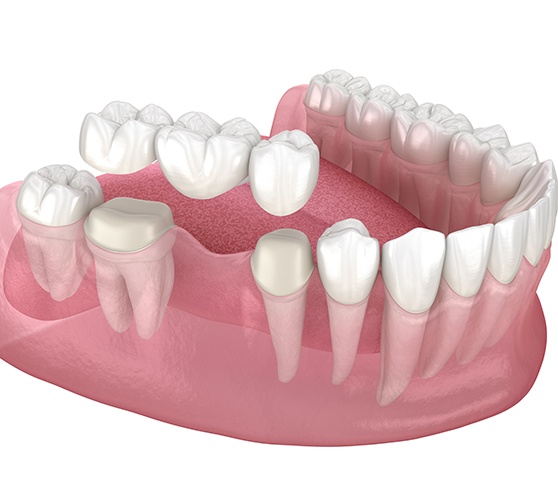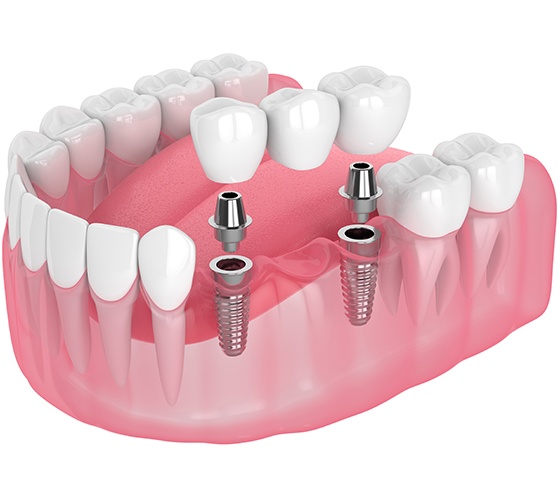Dental Bridges Owings Mills
Seamlessly Recomplete Your Smile
If you lose one of your teeth, it is important that you explore your tooth replacement options! Otherwise, you may face future oral health complications. After an examination, Dr. Mattson and our team might recommend that you get a dental bridge, a convenient and sturdy restoration that has the potential to seamlessly recomplete your smile! Read more about dental bridges in Owings Mills on this page, or get in touch with us to request a tooth replacement consultation.
Why Choose Diamond Dental of Owings Mills for Dental Bridges?
- Partnered with Top-Quality Dental Laboratories
- Lifelike Restorations that Stand the Test of Time
- Highly Experienced & Accomplished Dentist
What Is a Dental Bridge?

A dental bridge is a restoration that is designed to replace one or more missing teeth. Bridges usually have a crown on each side, which support one or more pontics (artificial teeth) between them. Bridges can be made of various materials, but we often prefer porcelain or ceramic due to their strong resemblance to natural tooth enamel.
Most patients with mild to moderate tooth loss can get a bridge. Before approving you for this procedure, Dr. Mattson will make sure your mouth is healthy enough to support the restoration.
Types of Dental Bridges

There are a few different types of dental bridges. In our practice, the two types of bridges that we most often provide are traditional bridges (also known as fixed bridges) and implant bridges. Both options can be very sturdy and highly functional. However, there are some key differences between them. During your consultation, Dr. Mattson will recommend the type of bridge that best fits your unique situation.
Traditional Dental Bridges

A traditional dental bridge is supported by the natural teeth that surround a gap (called the abutment teeth), which must be modified in order to fit beneath their crowns. It usually takes just a few appointments to design and place this type of bridge. Once it is in place, it may last for 10 years or longer before replacement becomes necessary.
Implant Bridges

An implant bridge is not supported by the nearby natural teeth. Rather, it gains all of its strength from prosthetic tooth roots (dental implants), which get surgically placed into the jawbone. Although implant bridges require a longer treatment process than their traditional counterparts, they tend to be stronger. They also do not usually require that any nearby teeth be modified.
The Benefits of Getting a Dental Bridge

A dental bridge offers several outstanding benefits:
- It serves as a placeholder. In other words, it can prevent your remaining natural teeth from drifting out of place.
- It improves chewing function. A bridge can take some of the pressures of chewing, which can reduce wear and tear on your natural teeth.
- It can enhance your confidence. A bridge can look very natural, so you can expect to be able to smile with confidence.
Are you ready to replace your missing teeth? Book a consultation with our friendly team today!
